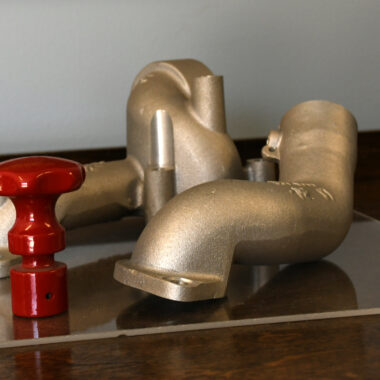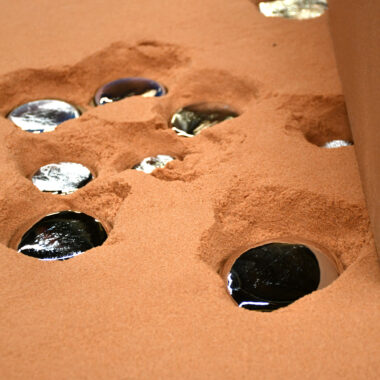Casting Aluminum Proficiency: Release Your Creative Possible
Casting Aluminum Proficiency: Release Your Creative Possible
Blog Article
Light Weight Aluminum Casting Services Revealed: Important Insights and Tips
Checking out the world of light weight aluminum casting services can unveil a world of complex procedures and nuanced factors to consider that are essential for effective results. As we venture right into the world of light weight aluminum spreading solutions, prepare to uncover the key elements that can shape the trajectory of your jobs and raise your understanding of this detailed craft.
The Essentials of Light Weight Aluminum Spreading
What basic procedures are entailed in light weight aluminum spreading that create the foundation of this extensively made use of production method? Light weight aluminum casting is a flexible and economical technique utilized in various industries to create facility and detailed steel elements. The process begins with the melting of light weight aluminum ingots in a heater, commonly at temperature levels ranging from 1220 ° F to 1670 ° F, depending on the specific light weight aluminum alloy being made use of. When molten, the aluminum is put right into a pre-designed mold and mildew cavity, where it takes the form and strengthens of the mold.
After solidification, the mold and mildew is removed, and the casting goes through completing procedures such as warmth treatment, machining, and surface layer to meet the required specifications. Comprehending these essential procedures is important for accomplishing premium light weight aluminum spreadings with exact measurements and mechanical properties.
Different Casting Methods Explained
Checking out the various methods used in light weight aluminum casting provides beneficial insights into the diverse approaches utilized to achieve intricate and accurate steel parts. One usual method is sand casting, where a mold is developed making use of compressed sand around a pattern of the desired part. One more technique, die casting, involves injecting molten light weight aluminum into a steel mold under high pressure.
Aspects to Take Into Consideration When Selecting a copyright
When selecting an aluminum spreading service provider, evaluating their experience and expertise is critical for ensuring high quality and integrity in the manufacturing process. The copyright's experience in the area indicates their familiarity with different casting methods, prospective obstacles, and ideal methods. It is vital to ask about the kinds of projects they have actually worked on in the past, guaranteeing they line up with the intricacy and specs of your very own job.
Furthermore, take into consideration the company's reputation within the industry. Search for reviews, testimonials, and study that show their ability to supply top quality aluminum castings regularly. A trustworthy provider will certainly usually have qualifications or affiliations with market companies, showcasing their commitment to quality and adherence to market criteria.
In addition, analyze the copyright's capacities in terms of personalization, volume requirements, and project timelines. Make certain that they can accommodate your specific needs and have the versatility to range production as required. Efficient interaction and transparency regarding costs, lead times, and quality assurance procedures are also crucial factors to consider when picking a light weight aluminum casting service supplier.

Usual Obstacles and Solutions
Navigating through the intricacies of aluminum casting processes often provides makers with a collection of challenges that require cutting-edge services to make certain efficiency and quality in manufacturing. One typical challenge encountered in aluminum spreading is the development of problems such as porosity, shrinkage, or incorporations as a result of improper mold design or inadequate metal quality. These problems can endanger the structural integrity of the end product. To resolve this, manufacturers must carry out comprehensive simulations and tests to optimize the spreading process criteria and make sure the quality of the molds and products made use of.
One more obstacle lies in achieving accurate dimensional accuracy, especially for complex geometries. Variants in cooling prices, mold and mildew development, and material buildings can lead to discrepancies from the designated measurements. Applying innovative technologies like computer-aided design (CAD) and computer numerical control (CNC) machining can enhance accuracy and consistency in aluminum casting. Additionally, maintaining proper control over the melting and pouring processes is crucial to stop problems like overheating or uneven distribution of the molten metal - casting aluminum. By buying automation and real-time surveillance systems, suppliers can boost procedure control and lessen variants, eventually improving the overall quality of aluminum cast products.
Tips for Optimizing Your Spreading Projects
By making sure that the gating system is well-designed and appropriately placed, you can enhance the circulation of liquified aluminum and minimize the opportunities of problems in the last spreading. Additionally, using computer system simulations can help in anticipating and assessing the flow of metal during the casting procedure, permitting for adjustments to be made before actual manufacturing starts.

Verdict
Finally, recognizing the basics of aluminum casting, various spreading methods, aspects to take into consideration helpful resources when choosing a supplier, usual challenges and services, and ideas for maximizing casting projects are vital for effective end results. By sticking to these insights and executing finest individuals, services and methods can make sure efficient and effective light weight aluminum casting services that meet their particular needs and requirements.
Understanding these fundamental procedures is essential for attaining high-quality light weight aluminum spreadings with exact dimensions and mechanical residential properties.
When selecting a light weight aluminum spreading service company, evaluating their experience and proficiency is crucial for ensuring top quality and dependability in the manufacturing process. Reliable interaction and transparency pertaining to costs, lead times, and high quality control processes are also essential factors to take into consideration when selecting an aluminum spreading service copyright.
Navigating through official statement the intricacies of aluminum spreading processes usually provides producers with a collection of difficulties that call learn the facts here now for ingenious solutions to make sure efficiency and top quality in production. One typical challenge dealt with in aluminum casting is the development of problems such as porosity, contraction, or additions due to inappropriate mold style or poor metal top quality.
Report this page